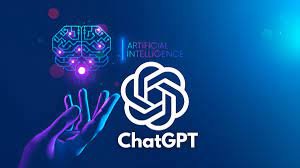
The Impact of AI on Ethics and Corporate Accountability: Lessons from ChatGPT and Recent Industry Developments
The advent of ChatGPT and the rapid evolution of artificial intelligence (AI) technologies have brought ethics to the forefront of discussions surrounding AI. This shift is reshaping corporate accountability and challenging traditional views on responsibility. This report delves into the changing landscape of AI ethics, its implications on leadership accountability, and recent events underscoring the need for a robust ethical framework.
The Changing Dynamics of AI Discourse:
- ChatGPT’s introduction marked a turning point in AI discussions, catapulting ethics into the limelight.
- AI-related headlines now dominate news feeds, covering both the technology’s capabilities and the ethical dilemmas associated with its development.
- Ethical concerns range from potential societal experiments without consent to environmental impacts and the broader ethical implications of AI.
AI Ethics: A Growing Concern:
- The increasing focus on AI ethics reveals a significant accountability gap, leading to heightened scrutiny of the ethical dimensions of AI technologies.
- AI’s alignment with human moral values, known as the issue of alignment, has become a central topic in debates around AI accountability.
- The development of best practices, even before formal regulation, demonstrates the industry’s commitment to addressing ethical challenges.
The Accountability Gap in AI:
- While human ethics were not a prominent discussion point, the emergence of AI has brought machine ethics to the forefront.
- The lack of accountability mechanisms for AI decisions creates discomfort, prompting discussions on how to hold machines accountable for their actions.
- Notions like explainability of AI decisions are gaining traction, setting higher standards for machines than for humans in certain aspects.
Recent Events and Industry Standards:
- Recent events, such as the drama at OpenAI and the resignation of Kurt Vogt from Cruise, highlight the emerging industry standards for accountability in AI-related endeavors.
- Cruise’s response to a relatively low number of autonomous vehicle incidents indicates a stringent industry standard surpassing traditional automotive norms.
- The incidents underscore the tightrope corporate leaders walk between AI development and the necessity for safety and accountability.
Ethics as a Non-Negotiable Aspect:
- Silicon Valley witnesses a growing divide between advocates of rapid AI development and those emphasizing a more cautious approach.
- The public demand for ethical AI aligns with the promise of human flourishing, challenging the binary choice between innovation and safety.
- Ethics has transitioned from being a subject of jest to a non-negotiable aspect in corporate decision-making.
Leadership’s Role in Shaping AI Ethics:
- Corporate leaders and board members face an era of increased accountability in navigating the uncertainties of powerful technologies like AI.
- Conditions conducive to integrating ethics into corporate decisions must be established, and leaders must ensure their existence or create them where lacking.
As AI continues to redefine technological landscapes, the integration of ethics into AI discussions becomes imperative. Corporate accountability, leadership responsibility, and adherence to ethical standards are no longer optional. The lessons learned from ChatGPT, recent industry events, and the evolving discourse around AI ethics underscore the need for a proactive and principled approach in steering the development and deployment of AI technologies.

